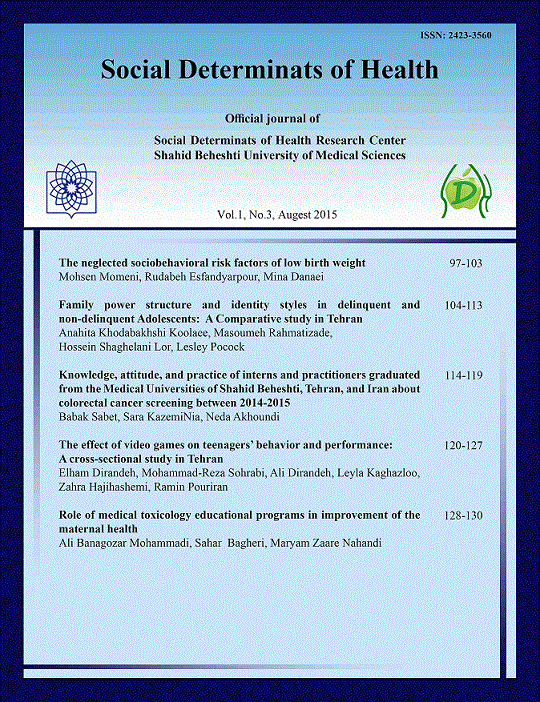The neglected sociobehavioral risk factors of low birth weight
Social Determinants of Health,
Vol. 1 No. 3 (2015),
12 Mordad 2015,
Page 97-103
https://doi.org/10.22037/sdh.v1i3.11154
Background: Low Birth Weight (LBW) is one of the most important health indicators in the world. It has certain known and unknown causes. The present study was designed to evaluate the role of socio-behavioral factors on neonatal birth weight.
Methods: The current case-control study was conducted on 300 eligible neonates (150 LBW infants as cases and 150 normal body weight infants as controls) in 2015. The national pregnancy care forms of the neonates kept in heath care centers in Kerman were used. The data was analyzed running Independent samples t-test, Chi square test, and Fisher’s Exact test in SPSS. The significance level was set as 0.05.
Results: Preterm birth (P<0.001), number of primary care during pregnancy (P=0.001), mother’s age (P=0.049), consumption of supplements during pregnancy (P=0.03), and history of substance abuse in mothers (P=0.03) were found to have significant roles in having LBW neonate.
Conclusion: Identifying the sociobehavioral risk factors of Preterm labor and modifying them to prevent preterm birth are essential approaches to prevent LBW. Governments should pay special attention to nutritional status of teenage and young girls to have healthy mothers and babies in the future. Women of childbearing age should be screened and educated about risky behaviors. Pregnancy care and support should be delivered to all pregnant women according to the standard methods.
